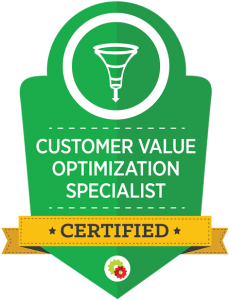SEO for Small Businesses: Affordable Strategies to Get You Noticed
Search Engine Optimization (SEO) is crucial for small businesses looking to increase their online visibility, attract more customers, and compete with larger companies. However, many small business owners often believe that SEO is too expensive, complicated, or time-consuming. The truth is, effective SEO doesn’t have to break the bank. By implementing affordable strategies tailored to small businesses, you can boost your website’s search engine rankings, drive organic traffic, and get noticed without a hefty investment. This detailed guide will provide practical, budget-friendly SEO tips to help your small business thrive in the competitive digital landscape.
In today’s digital age, having a website is not enough; your small business needs to be easily found by potential customers searching online. SEO is the key to making that happen. Good SEO helps your website rank higher in search engine results, increases organic traffic, and ultimately leads to more sales and customer engagement. But where do you start, especially when resources are limited? This article will explore actionable and affordable SEO strategies that any small business can implement to get noticed and compete effectively.
Why SEO is Essential for Small Businesses
SEO is not just a buzzword; it’s a vital component of any successful online strategy, particularly for small businesses trying to stand out in a crowded market. Here’s why SEO is crucial:
- Increased Online Visibility: SEO helps your business appear in search results when potential customers are looking for products or services like yours.
- Higher Credibility and Trust: Websites that rank well are often seen as more trustworthy and credible by users, which can positively impact your brand perception.
- Cost-Effective Marketing: Unlike paid advertising, which requires ongoing investment, SEO focuses on organic traffic that can continue to bring in visitors long after initial efforts.
- Better User Experience: SEO strategies often include improving site speed, mobile optimization, and content quality, all of which enhance the overall user experience.
- Competitive Edge: Small businesses that invest in SEO can effectively compete with larger companies by targeting local searches and niche keywords.
Affordable SEO Strategies for Small Businesses
Small businesses can significantly improve their search rankings without a large budget by focusing on smart, targeted SEO strategies. Below are cost-effective methods to boost your SEO efforts and get your business noticed.
Conduct Keyword Research
Keyword research is the foundation of any successful SEO strategy. It helps you understand what potential customers are searching for and allows you to optimize your website accordingly.
- Use Free Tools: Leverage free tools like Google Keyword Planner, Ubersuggest, and Answer the Public to find keywords relevant to your business.
- Focus on Long-Tail Keywords: Long-tail keywords are more specific, less competitive, and often have a higher conversion rate. For example, instead of targeting “shoes,” focus on “women’s running shoes for flat feet.”
- Localize Your Keywords: If you serve a local market, incorporate location-specific keywords like “plumber in Austin” to attract nearby customers.
Optimize Your Website Content
Quality content is the backbone of SEO. Well-written, informative, and engaging content helps keep visitors on your site longer, which can improve your search rankings.
- Create Valuable Content: Write blog posts, articles, and guides that address common questions or pain points in your industry. Provide value to your audience and establish your business as an authority.
- Incorporate Keywords Naturally: Use your target keywords in strategic places, such as titles, headings, meta descriptions, and throughout the body of your content, but avoid keyword stuffing.
- Update Content Regularly: Refreshing your content with updated information, new keywords, or additional insights keeps it relevant and can boost your SEO performance.
Optimize Your Google Business Profile
A well-optimized Google Business Profile (GBP) is essential for local SEO and helps your business appear in local searches and on Google Maps.
- Claim and Verify Your Profile: Ensure your GBP is claimed, verified, and complete with accurate business information, including your address, phone number, hours, and website URL.
- Use High-Quality Photos: Upload professional photos of your business, products, or services to make your profile stand out.
- Encourage Customer Reviews: Positive reviews can significantly improve your local ranking. Encourage satisfied customers to leave reviews and respond to them professionally.
Improve Your Website’s On-Page SEO
On-page SEO refers to optimizing individual pages on your website to rank higher in search results. This involves elements like titles, meta descriptions, and internal linking.
- Use SEO-Friendly URLs: Create clean, readable URLs that include your primary keyword. Avoid long strings of numbers or special characters.
- Optimize Meta Titles and Descriptions: Craft compelling titles and descriptions that include your target keywords and entice users to click.
- Internal Linking: Link to other relevant pages on your site to help search engines understand your content structure and keep visitors engaged.
Leverage Local SEO Tactics
Local SEO is crucial for small businesses that rely on local customers. By optimizing your website for local searches, you can attract customers who are searching for businesses near them.
- Add Location Pages: If you have multiple locations, create dedicated pages for each with unique content that includes local keywords.
- Use Local Keywords: Incorporate local terms into your content, such as city names, neighborhoods, or landmarks, to improve local visibility.
- List Your Business on Local Directories: Submit your business information to local directories and citation sites like Yelp, Bing Places, and TripAdvisor to build local relevance.
Build Quality Backlinks
Backlinks, or links from other websites to yours, are a critical factor in SEO. They signal to search engines that your site is credible and authoritative.
- Reach Out for Guest Posting: Offer to write guest posts for industry blogs or local websites in exchange for a backlink to your site.
- Engage in Local Partnerships: Partner with local businesses or organizations that can link back to your website, such as local chambers of commerce or community blogs.
- Create Shareable Content: Infographics, case studies, and original research are great ways to create content that others want to link to.
Optimize Your Website for Mobile Users
With the majority of searches now happening on mobile devices, having a mobile-friendly website is essential for SEO.
- Use Responsive Design: Ensure your website adjusts seamlessly to different screen sizes, providing a great experience on mobile devices.
- Speed Up Your Site: Optimize images, reduce redirects, and use caching to improve page load times, which is crucial for retaining mobile visitors.
- Simplify Navigation: Make it easy for mobile users to find what they’re looking for with clear menus, search bars, and clickable buttons.
Focus on Technical SEO
Technical SEO involves optimizing the backend of your website to improve its performance and make it easier for search engines to crawl and index your content.
- Fix Broken Links: Use tools like Screaming Frog or Google Search Console to find and fix broken links that can harm your SEO.
- Ensure Your Site is Secure: Use HTTPS to secure your website, which can improve trust and search rankings.
- Create an XML Sitemap: Submit a sitemap to Google Search Console to help search engines index your site efficiently.
Best Practices for Small Business SEO
Implementing these best practices can further enhance your SEO efforts and help your small business stand out in search results:
1. Focus on User Experience (UX)
Google prioritizes websites that offer a positive user experience. This means your website should be easy to navigate, visually appealing, and provide clear information that meets user intent.
- Simplify Navigation: Use clear headings, easy-to-find menus, and logical site structure to guide users through your website.
- Reduce Clutter: Keep your design clean and avoid overwhelming users with too many ads, pop-ups, or distracting elements.
- Improve Readability: Use legible fonts, appropriate text sizes, and adequate spacing to make your content easy to read.
2. Use Analytics to Track Your Progress
Monitoring your SEO performance is essential to understand what’s working and what needs improvement.
- Set Up Google Analytics and Search Console: These free tools provide valuable insights into your traffic sources, user behavior, and how your website performs in search results.
- Track Key Metrics: Focus on metrics like organic traffic, bounce rate, average session duration, and conversions to assess the effectiveness of your SEO efforts.
- Adjust Your Strategy Based on Data: Use the data to identify trends, refine your keywords, and optimize your content strategy.
3. Regularly Update Your Website
Search engines favor websites that are active and regularly updated. Consistently adding new content, such as blog posts, product updates, or news, can help improve your SEO.
- Publish Fresh Content: Regularly add new blog posts, articles, or videos that provide value to your audience.
- Update Old Content: Refresh outdated information and optimize older posts with new keywords or insights to keep them relevant.
- Fix Outdated Links: Replace broken or outdated links within your content to maintain a positive user experience.
4. Engage on Social Media
Social media can indirectly boost your SEO by driving traffic to your website and increasing brand awareness.
- Share Your Content: Promote your blog posts, guides, or product updates on social media platforms to reach a broader audience.
- Engage with Followers: Respond to comments, messages, and mentions to build relationships and encourage more visits to your site.
- Use Social Proof: Highlight customer testimonials, reviews, or user-generated content to build trust and drive traffic.
Common SEO Mistakes Small Businesses Should Avoid
Avoiding common pitfalls is essential to maintaining an effective SEO strategy. Here are some mistakes to watch out for:
Neglecting Local SEO
If your small business relies on local customers, ignoring local SEO tactics can severely limit your visibility. Focus on optimizing for local searches by targeting location-specific keywords and ensuring your Google Business Profile is fully optimized.
Keyword Stuffing
Overusing keywords can make your content feel spammy and negatively impact your SEO. Instead, focus on naturally incorporating keywords into high-quality, engaging content.
Ignoring Mobile Optimization
With most searches happening on mobile devices, failing to optimize your website for mobile users can hurt your rankings and drive potential customers away.
Not Tracking Your SEO Performance
Without monitoring your SEO efforts, you won’t know what’s working or where you need to improve. Regularly review your analytics to make data-driven decisions.
Slow Page Load Times
A slow website can frustrate users and lead to high bounce rates, negatively affecting your SEO. Optimize images, minimize code, and leverage browser caching to improve load times.
FAQs
What is SEO, and why is it important for small businesses?
SEO (Search Engine Optimization) is the practice of optimizing your website to rank higher in search engine results. It’s crucial for small businesses because it increases online visibility, drives organic traffic, and boosts credibility.
How can small businesses afford SEO?
Small businesses can afford SEO by focusing on cost-effective strategies like optimizing Google Business Profiles, creating valuable content, targeting local keywords, and leveraging free SEO tools.
What are the best free tools for SEO?
Some of the best free tools for small business SEO include Google Keyword Planner, Google Analytics, Google Search Console, and Ubersuggest.
How does local SEO benefit small businesses?
Local SEO helps small businesses attract nearby customers by optimizing their online presence for location-based searches. This includes claiming Google Business Profiles, targeting local keywords, and listing on local directories.
How often should I update my website for SEO?
Regular updates are recommended to keep your content fresh and relevant. Aim to add new blog posts or update existing content at least once a month.
What are long-tail keywords, and why are they important?
Long-tail keywords are more specific and less competitive search phrases that often have higher conversion rates. They help small businesses target niche audiences and improve their chances of ranking in search results.
Conclusion
SEO is an invaluable tool for small businesses looking to get noticed in today’s digital landscape. By implementing affordable and effective SEO strategies, you can enhance your online visibility, attract more customers, and build a strong digital presence. From keyword research and content optimization to leveraging local SEO and technical improvements, these actionable tips provide a solid foundation to help your small business thrive. Start optimizing your website today, and watch as your rankings, traffic, and sales grow without breaking the bank.











